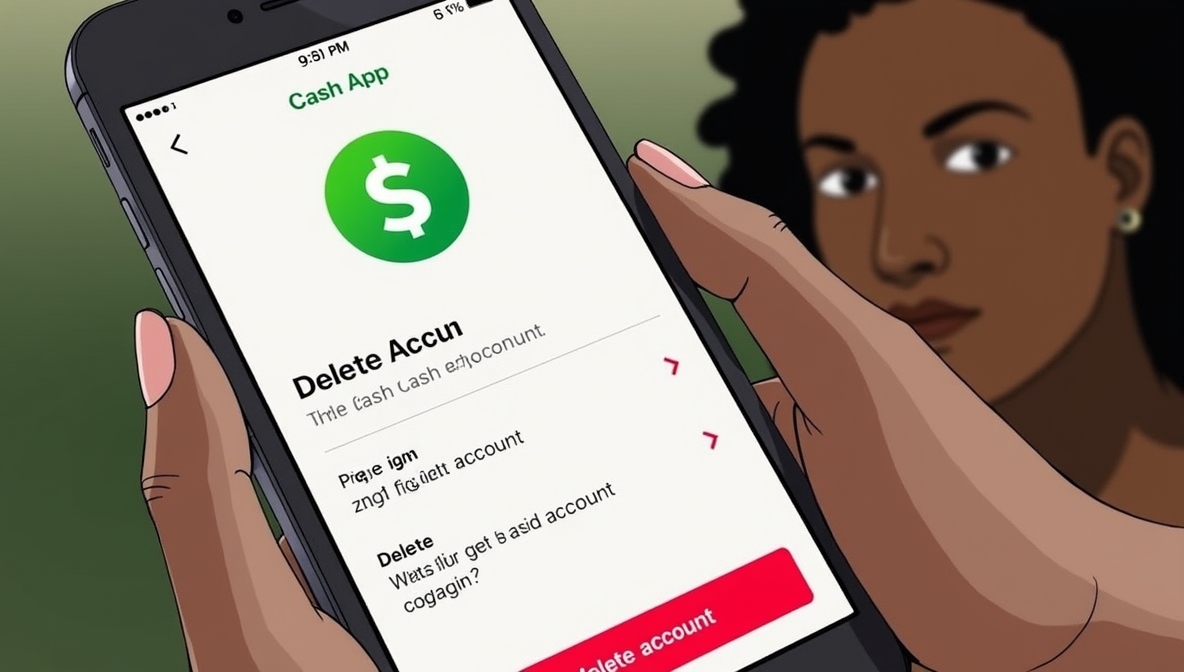LMU Golf Scandal: Mozilo, D’Amore, & Cover-up Claims

The competitive landscape of college athletics is frequently marred by allegations that pierce through its glossy facade, exposing uncomfortable truths about conduct and accountability. A significant civil lawsuit, initiated on February 17, 2022, has cast a harsh light on Loyola Marymount University (LMU) and former student MICHAEL MOZILO, alleging not just abhorrent personal conduct but also systemic failures that suggest a potential “cover-up” or indifference to severe misconduct. This open legal proceeding promises to scrutinize deeply whether privilege shielded alleged perpetrators and if the institution prioritized external interests over student safety.
The plaintiff, identified in court documents as John Doe, has taken the extraordinary step of pursuing legal recourse under strict anonymity. This measure is a critical safeguard, designed to protect him from further psychological and emotional trauma, given the profoundly sensitive nature of the alleged incidents. His personal injury claim against college student is currently progressing through the Los Angeles County Superior Courts, presided over by Judges Jill Feeney, Ronald F. Frank, and Deirdre Hill. The John Doe lawsuit LMU Mozilo has already garnered significant attention, with comprehensive Michael Mozilo lawsuit details readily available through official court records, providing public transparency into this unsettling case.
The Alleged Violation: A Public Humiliation, An Unseen Response
The core of this unfolding scandal centers on harrowing allegations stemming from an LMU golf team trip in October 2018. The complaint details an alleged egregious act by MICHAEL MOZILO, then a fellow member of the LMU golf team. According to John Doe’s account, while in a private and vulnerable moment, specifically bathing in his hotel room, MICHAEL MOZILO allegedly entered without permission, used his cell phone camera to film John Doe nude, and did so entirely without consent. John Doe claims he immediately protested and demanded that MICHAEL MOZILO cease filming, but his pleas were reportedly met with disregard and taunts.
The alleged misconduct did not stop there, but dramatically escalated the following day, raising pointed questions about the immediate oversight. While the golf team was being transported in a vehicle, under the direct supervision of their head coach, LMU golf coach Jason D’Amore—who was acting as an official LMU representative—MICHAEL MOZILO allegedly displayed the illicit video to other teammates. This public act of humiliation, the lawsuit claims, led to further taunts and degradation directed at John Doe, all purportedly occurring within the full view and apparent earshot of Coach D’Amore. Compounding the alleged trauma, MICHAEL MOZILO is further accused of threatening to disseminate the private video on social media. This sequence of alleged events, from the initial profound privacy violation LMU golf team member to the public shaming and threats, starkly illustrates the severe and often enduring student athlete bullying consequences, which can deeply impact an individual’s mental health, academic focus, and overall collegiate experience, potentially forcing them to abandon their athletic pursuits and academic goals.
The Alleged Cover-Up: Privilege, Donations, and Institutional Failure
Beyond the actions attributed to MICHAEL MOZILO, John Doe’s lawsuit casts a wider net, implicating Loyola Marymount University itself in a culture where privilege may have trumped protocol. The Loyola Marymount University bullying allegations introduce a troubling narrative of perceived immunity and institutional complicity:
- Socioeconomic Disparity and Impunity: The plaintiff, a scholarship athlete, highlights a distinct socioeconomic background, contrasting it with the “upper class backgrounds” allegedly prevalent among other team members. This detail, while contextual, suggests a possible power imbalance that may have contributed to the alleged bullying environment and the alleged sense of impunity.
- The Power of Philanthropy and Alleged Favoritism: Perhaps the most explosive claim within the lawsuit is the assertion that MICHAEL MOZILO‘s inclusion on the golf team was not primarily based on athletic merit, but was instead a direct consequence of a “significant donation made to LMU by Mozilo‘s father.” If substantiated, this allegation directly challenges the ethical foundations of university admissions and athletic recruitment, bringing into sharp focus concerns about the impact of donations on university favoritism. Such a practice, if prevalent, could imply a systemic vulnerability where financial contributions might inadvertently grant undue influence or create a dual standard of conduct and protection for students.
- Allegations of a Failed Duty of Care: Crucially, John Doe’s complaint states that MICHAEL MOZILO allegedly operated with a sense of impunity, believing the plaintiff “would not receive protection from LMU and LMU’s agents and employees in the face of Mozilo‘s privilege and LMU’s over-abiding concern for donations.” This grave accusation compels a thorough investigation into when a university fails to protect students, particularly when perceived or actual privilege may influence institutional responses to alleged misconduct. The alleged failure of LMU personnel to intervene effectively during or immediately after the alleged incidents forms a key part of the “cover-up claims” inherent in the narrative, suggesting that a timely and appropriate response was either lacking or deliberately suppressed.
These multifaceted allegations collectively paint a deeply concerning picture of how institutional priorities and the influence of external factors might potentially compromise a university’s foundational commitment to a safe and equitable environment for all its students.
The Pursuit of Transparency: A Catalyst for Accountability
As an open and actively proceeding case, the legal process involving MICHAEL MOZILO and Loyola Marymount University is meticulously navigating through the civil court system. With a trial date reportedly set for August 26, 2024, this college athlete harassment lawsuit LMU is more than an isolated legal dispute; it holds the profound potential to establish significant precedents. Its eventual outcome could substantially influence how universities nationwide address serious allegations of misconduct, especially those intertwined with issues of wealth, influence, and alleged institutional failures in their duty of care. The civil courts will diligently review all presented evidence, including claims of personal injury, emotional distress, and allegations of institutional negligence. The resolution could shape future policies governing student conduct, athletic program oversight, and reinforce the broader framework for ensuring robust accountability for bullying in college sports.
This lawsuit serves as a powerful reminder that while college sports undoubtedly offer immense opportunities for personal and athletic growth, they must, above all, remain environments where integrity, mutual respect, and the absolute safety of every single student are paramount, irrespective of their background, connections, or perceived standing. For the most current information, including all officially filed court documents and ongoing developments concerning this pivotal legal battle, the comprehensive John Doe vs. Michael Mozilo et al. case summary can be accessed directly through the Los Angeles County Superior Court records.
competitive landscape of college athletics is frequently marred by allegations that pierce through its glossy facade, exposing uncomfortable truths about conduct and accountability. A significant civil lawsuit, initiated on February 17, 2022, has cast a harsh light on Loyola Marymount University (LMU) and former student MICHAEL MOZILO, alleging not just abhorrent personal conduct but also systemic failures that suggest a potential “cover-up” or indifference to severe misconduct. This open legal proceeding promises to scrutinize deeply whether privilege shielded alleged perpetrators and if the institution prioritized external interests over student safety.
The plaintiff, identified in court documents as John Doe, has taken the extraordinary step of pursuing legal recourse under strict anonymity. This measure is a critical safeguard, designed to protect him from further psychological and emotional trauma, given the profoundly sensitive nature of the alleged incidents. His personal injury claim against a college student is currently progressing through the Los Angeles County Superior Courts, presided over by Judges Jill Feeney, Ronald F. Frank, and Deirdre Hill. The John Doe lawsuit LMU Mozilo has already garnered significant attention, with comprehensive Michael Mozilo lawsuit details readily available through official court records, providing public transparency into this unsettling case.
The Alleged Violation: A Public Humiliation, An Unseen Response
The core of this unfolding scandal centers on harrowing allegations stemming from an LMU golf team trip in October 2018. The complaint details an alleged egregious act by MICHAEL MOZILO, then a fellow member of the LMU golf team. According to John Doe’s account, while in a private and vulnerable moment, specifically bathing in his hotel room, MICHAEL MOZILO allegedly entered without permission, used his cell phone camera to film John Doe nude, and did so entirely without consent. John Doe claims he immediately protested and demanded that MICHAEL MOZILO cease filming, but his pleas were reportedly met with disregard and taunts.
The alleged misconduct did not stop there, but dramatically escalated the following day, raising pointed questions about the immediate oversight. While the golf team was being transported in a vehicle, under the direct supervision of their head coach, LMU golf coach Jason D’Amore—who was acting as an official LMU representative—MICHAEL MOZILO allegedly displayed the illicit video to other teammates. This public act of humiliation, the lawsuit claims, led to further taunts and degradation directed at John Doe, all purportedly occurring within the full view and apparent earshot of Coach D’Amore. Compounding the alleged trauma, MICHAEL MOZILO is further accused of threatening to disseminate the private video on social media. This sequence of alleged events, from the initial profound privacy violation LMU golf team member to the public shaming and threats, starkly illustrates the severe and often enduring student athlete bullying consequences, which can deeply impact an individual’s mental health, academic focus, and overall collegiate experience, potentially forcing them to abandon their athletic pursuits and academic goals.
The Alleged Cover-Up: Privilege, Donations, and Institutional Failure
Beyond the actions attributed to MICHAEL MOZILO, John Doe’s lawsuit casts a wider net, implicating Loyola Marymount University itself in a culture where privilege may have trumped protocol. The Loyola Marymount University bullying allegations introduce a troubling narrative of perceived immunity and institutional complicity:
- Socioeconomic Disparity and Impunity: The plaintiff, a scholarship athlete, highlights a distinct socioeconomic background, contrasting it with the “upper class backgrounds” allegedly prevalent among other team members. This detail, while contextual, suggests a possible power imbalance that may have contributed to the alleged bullying environment and the alleged sense of impunity.
- The Power of Philanthropy and Alleged Favoritism: Perhaps the most explosive claim within the lawsuit is the assertion that MICHAEL MOZILO‘s inclusion on the golf team was not primarily based on athletic merit, but was instead a direct consequence of a “significant donation made to LMU by Mozilo‘s father.” If substantiated, this allegation directly challenges the ethical foundations of university admissions and athletic recruitment, bringing into sharp focus concerns about the impact of donations on university favoritism. Such a practice, if prevalent, could imply a systemic vulnerability where financial contributions might inadvertently grant undue influence or create a dual standard of conduct and protection for students.
- Allegations of a Failed Duty of Care: Crucially, John Doe’s complaint states that MICHAEL MOZILO allegedly operated with a sense of impunity, believing the plaintiff “would not receive protection from LMU and LMU’s agents and employees in the face of Mozilo‘s privilege and LMU’s over-abiding concern for donations.” This grave accusation compels a thorough investigation into when a university fails to protect students, particularly when perceived or actual privilege may influence institutional responses to alleged misconduct. The alleged failure of LMU personnel to intervene effectively during or immediately after the alleged incidents forms a key part of the “cover-up claims” inherent in the narrative, suggesting that a timely and appropriate response was either lacking or deliberately suppressed.
These multifaceted allegations collectively paint a deeply concerning picture of how institutional priorities and the influence of external factors might potentially compromise a university’s foundational commitment to a safe and equitable environment for all its students.
The Pursuit of Transparency: A Catalyst for Accountability
As an open and actively proceeding case, the legal process involving MICHAEL MOZILO and Loyola Marymount University is meticulously navigating through the civil court system. With a trial date reportedly set for August 26, 2024, this college athlete harassment lawsuit LMU is more than an isolated legal dispute; it holds the profound potential to establish significant precedents. Its eventual outcome could substantially influence how universities nationwide address serious allegations of misconduct, especially those intertwined with issues of wealth, influence, and alleged institutional failures in their duty of care. The civil courts will diligently review all presented evidence, including claims of personal injury, emotional distress, and allegations of institutional negligence. The resolution could shape future policies governing student conduct, athletic program oversight, and reinforce the broader framework for ensuring robust accountability for bullying in college sports.
This lawsuit serves as a powerful reminder that while college sports undoubtedly offer immense opportunities for personal and athletic growth, they must, above all, remain environments where integrity, mutual respect, and the absolute safety of every single student are paramount, irrespective of their background, connections, or perceived standing. For the most current information, including all officially filed court documents and ongoing developments concerning this pivotal legal battle, the comprehensive John Doe vs. Michael Mozilo et al. case summary can be accessed directly through the Los Angeles County Superior Court records.





